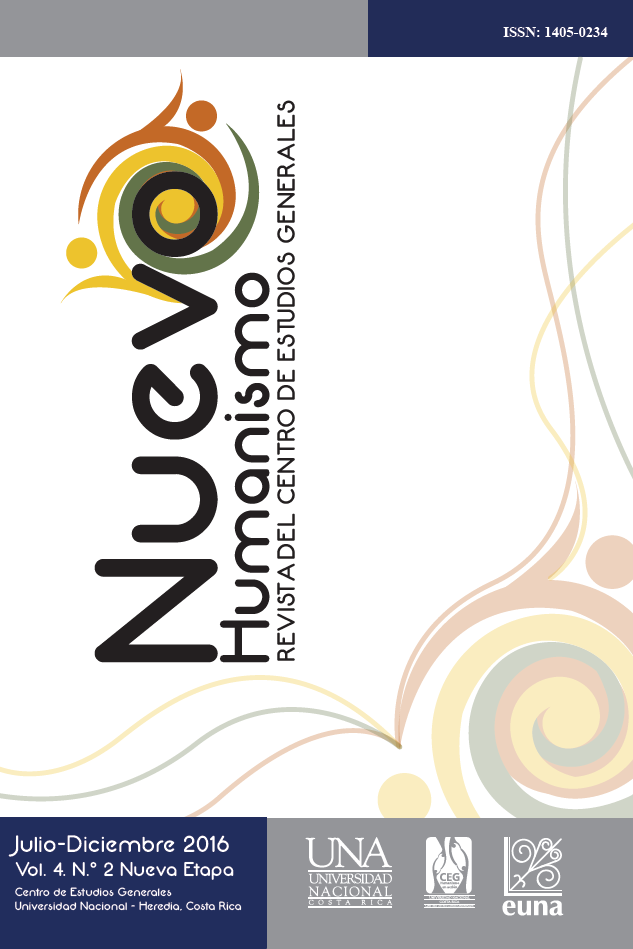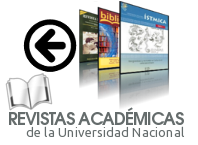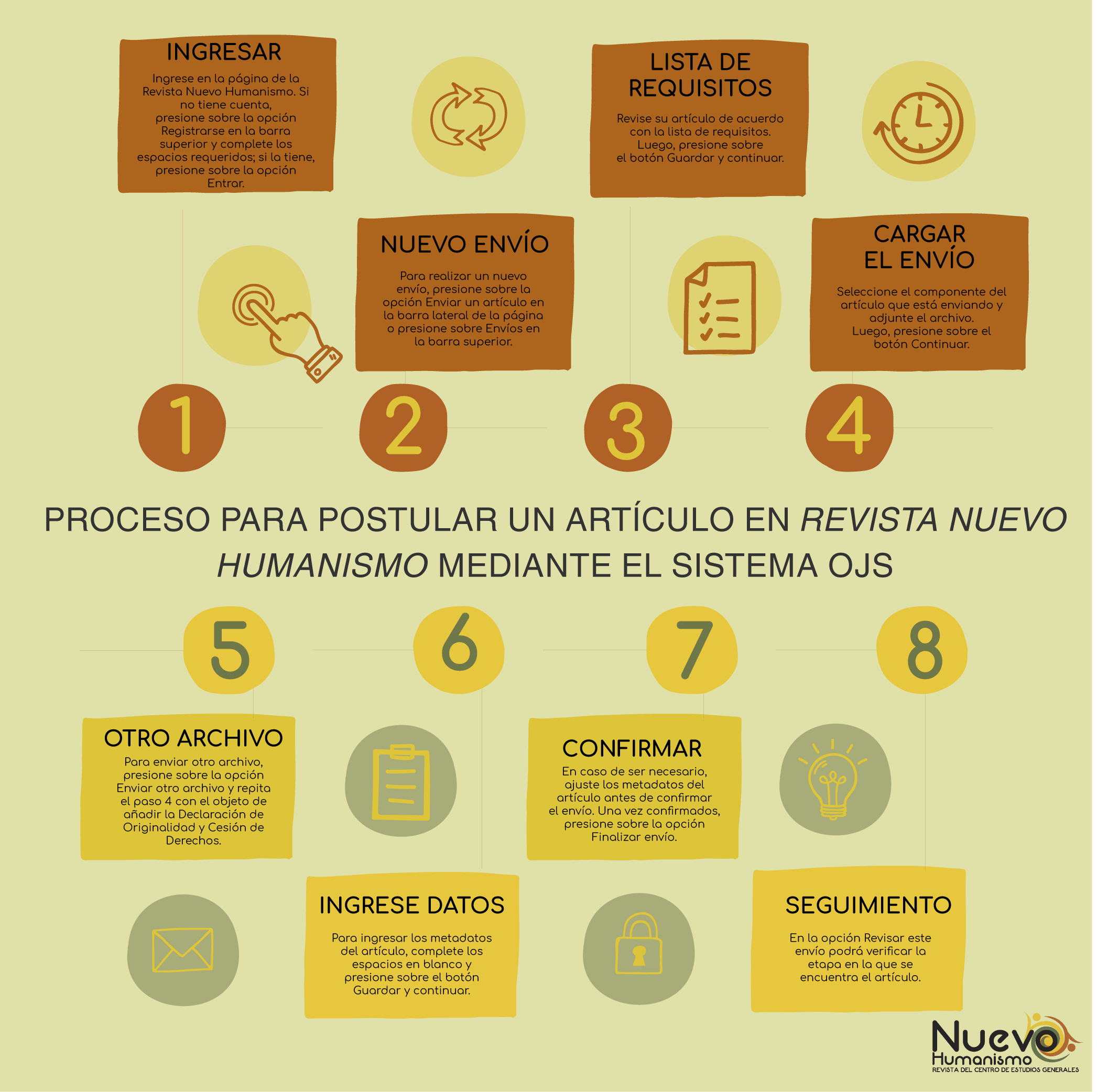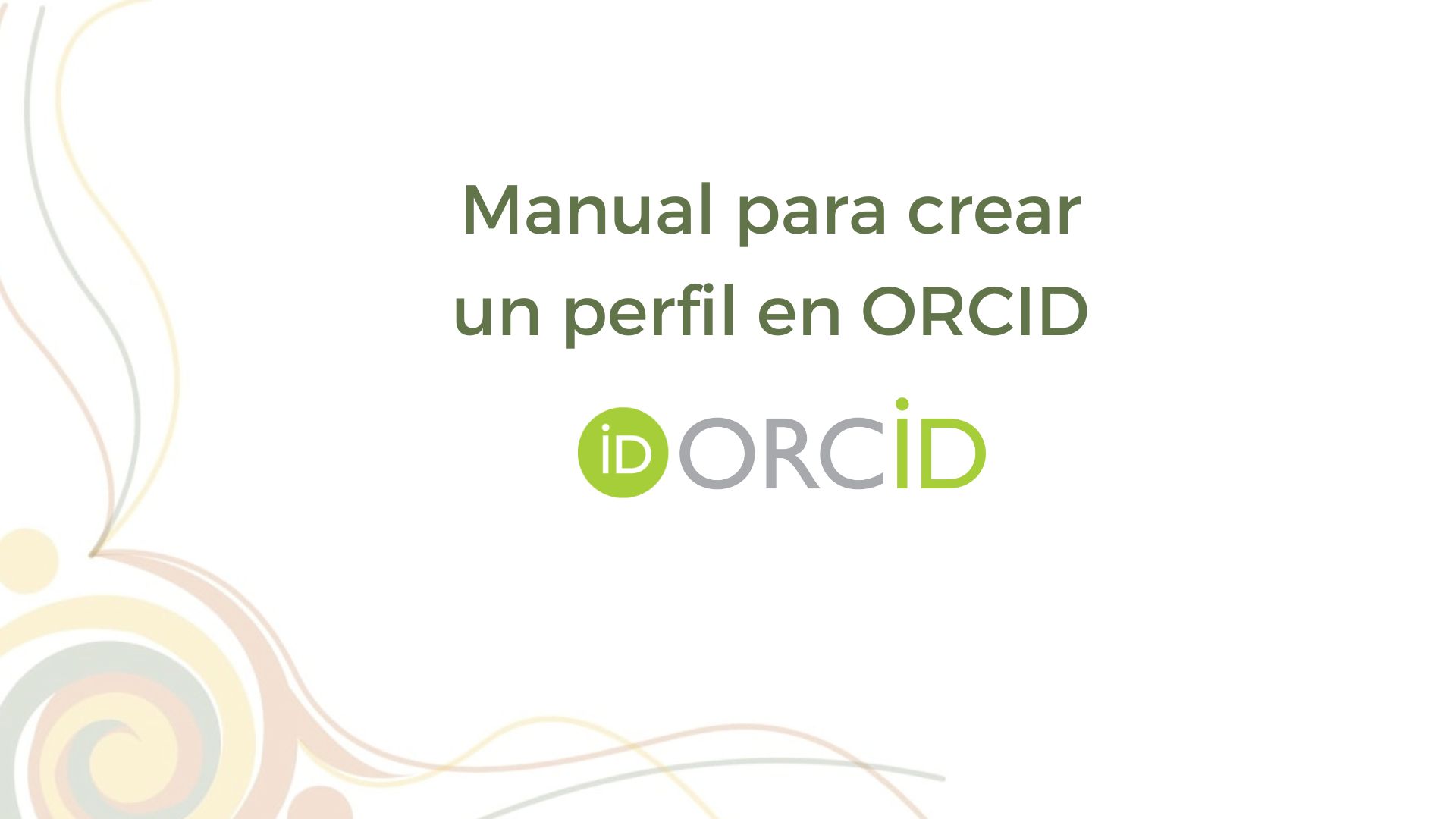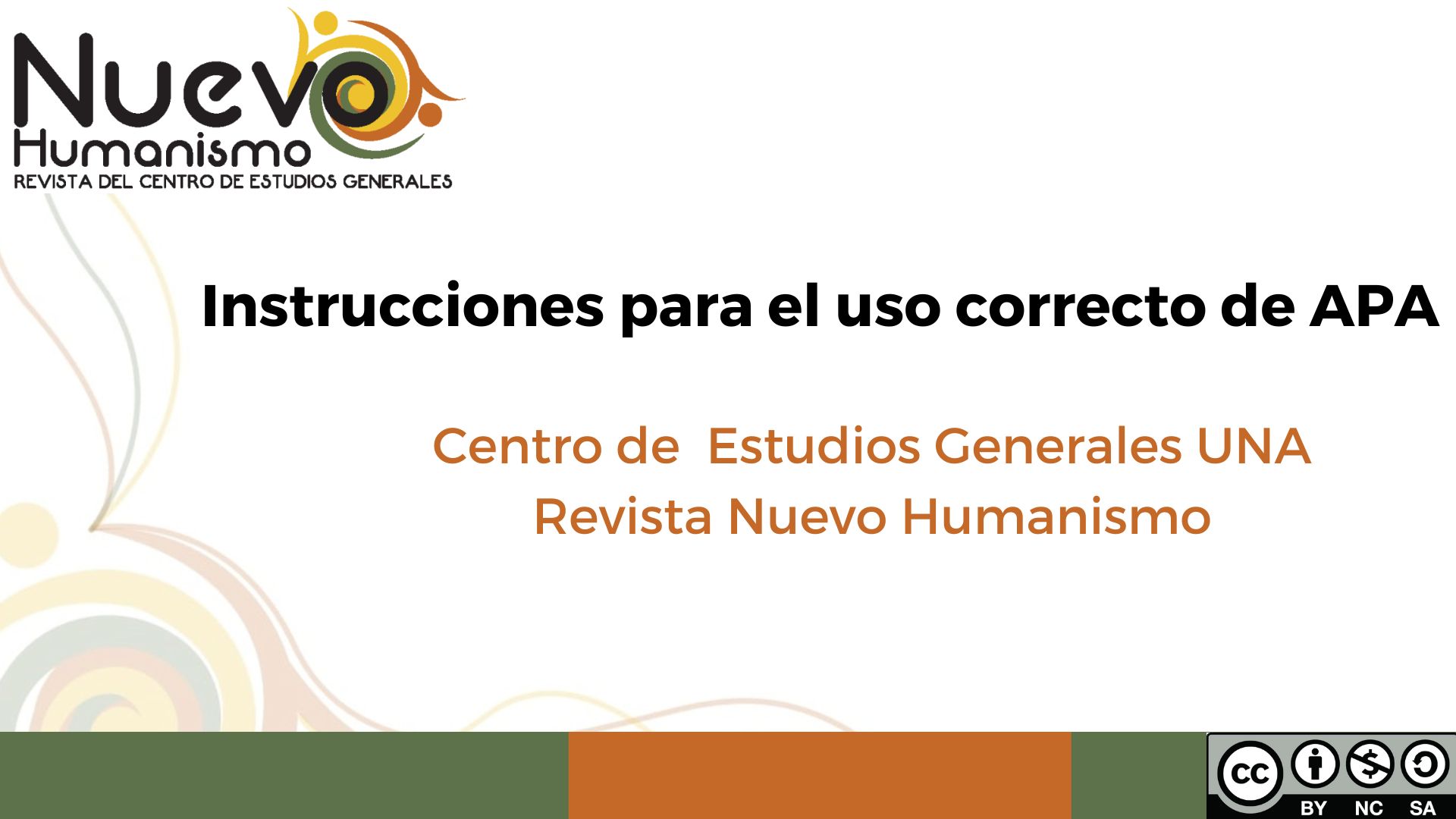Role of intercultural education in the conservation and sustainable management of natural resources, with emphasis on food systems
DOI:
https://doi.org/10.15359/nh.4-2.4Palabras clave:
intercultural education, natural resources conservation, sustainable management, UIMQRoo.Resumen
In Mexico, and other areas of Latin America, around to 80 % of the country’s natural resources (NR) are in the territories, hands, and the minds, of indigenous communities. Most of the research regarding management of NR in indigenous areas, link their culture to the sustainable use of NR. Unfortunately, the culture, which includes sophisticated systems of learning and constructing knowledge, is not taught in conventional schools, much less at university level. In fact, research shows that indigenous people lose confidence in their traditional ways of constructing knowledge and have strong difficulties acquiring the new system taught in schools. Thus, indigenous knowledge that carries out centuries of experimentation is being lost. This paper discusses a model, called intercultural education in Mexico, for higher education. The working definition for intercultural education, coined at the Intercultural Maya University of Quintana Roo (UIMQRoo), is: intercultural education is a process that takes place in a safe environment in which different systems of learning and constructing knowledge coexist, creating new avenues to innovate systems of teaching-learning-and constructing knowledge, using the best of indigenous and modern systems. Examples from agroecology and education, both academic programs at UIMQRoo, are presented and discussed to illustrate successful results of intercultural education. Access to education and food sovereignty, according to the cultural bases of indigenous people, are important not only from the human rights point of view but also for the social fabric and overall sustainability of a country, especially in a multicultural setting.Referencias
Alcalá, L., Rogoff, B., Mejía-Arauz, R., Coppens, A. D., y Dexter, A. L. (2014). Children's initiative in contributions to family work in Indigenous-heritage and cosmopolitan communities in Mexico. Human Development, 57(2-3), 96-115.
Barragán Alvarado, L. (2008). Pueblos indígenas y áreas protegidas en América Latina. Santiago, Chile: Organización de las Naciones Unidas para la Agricultura y la Alimentación; Red Latinoamericana de Cooperación Técnica en Parques Nacionales, otras Áreas Protegidas, Flora y Fauna Silvestres; y Organismo Autónomo Parques Nacionales del Ministerio de Medio Ambiente y Medio Rural y Marino de España.
Berkes, F. (2004). Traditional Ecological Knowledge in perspective. Pages 1-6 in J.T. Inglis editor. Traditional Ecological Knowledge: Concepts and Cases. International Program on Traditional Ecological Knowledge, Ottawa, Canada.
Berkes, F., Folke, C. & Gadgil, M. (1994). Traditional ecological knowledge, biodiversity, resilience and sustainability. In: C.A. Perrings , K.G. Mäler, C. Folke, C.S. Holling & B_O. Janson (Eds). Biodiversity conservation. Problems & policies. Dordrecht. The Netherlands: Kluwer Academic Publichers, pp. 281-299.
Bolin, I. (2006). Growing up in a culture of respect: Childrearing in highland Peru. Austin: University of Texas Press.
Cisneros, P. & McBreen, J. (2010). Superposición de territorios indígenas y áreas protegidas en América del Sur. Resumen ejecutivo. Quito, Ecuador: Unión Internacional para la Conservación de la Naturaleza, Department for International Development.
Everton, M. (2016). Los Mayas contemporaneous. Incidencias de viaje y amistad en Yucatan. José María Morelos, Quintana Roo: Universidad Intercultural Maya de Quintana Roo, Capítulo IV, pp. 224-253.
FMAM. (2008). Comunidades indígenas y biodiversidad. Washington: Fondo para el Medio Ambiente Mundial. Available at: http://beta.thegef.org/sites/default/files/publications/Indigenous-People-Spanish-PDF_0.pdf
Gaskins, S. (1999). Children's daily lives in a Mayan Village: A case study of culturally constructed roles and activities. In: A. Göncü (Ed.), Children's engagement in the world, Cambridge: Cambridge University Press, pp. 25-61.
Gaskins, S. (2003). From corn to cash: Change and continuity within Mayan families. Ethos, 31(2), 248-273.
Gaskins, S., & Paradise, R. (2010). Learning through observation in daily life. In: D. F. Lancy, J. Bock & S. Gaskins (Eds.). The anthropology of learning in childhood. Lanham, MD: Alta Mira Press, pp. 100-140.
Gómez-Baggethum, E., Corbera, E. & Reyes-García, V. (2013). Traditional ecological knowledge and global environmental change: research findings and policy implications. Ecology and Society, 18(4):72. http://dx.doi.org/10.5751/ES-06288-180472
González Jácome, A. (2004). Ambiente y cultura en la agricultura tradicional de México: casos y perspectivas. Ciencia Ergo Sum, Julio-Octubre, 11(2), 153-163.
González Jácome, A. (2009). El maíz como producto cultural desde los tiempos antiguos. En: C. Morales Valderrama, y C. Rodriguez Lazcano, (Coords.). Desgranando una mazorca. Orígenes y etnografía de los maíces nativos. Diario de Campo, Suplemento Número 52, Enero-Febrero, pp 40-67.
González Jácome, A. (2011). Historias varias. Un viaje en el tiempo con los agricultores mexicanos. México: Universidad Iberoamericana.
Mazzocchi, F. (2006). Western science and traditional knowledge. EMBO Reports, 7(5), 463-466.
Mejía, A., Sennhauser, E. y Wellenstein, A. (2007). El manejo del agua en territorios indígenas en México. Washington: Banco Mundial, Departamento de México y Colombia, Región de América Latina y El Caribe.
Paradise, R. (1985). Un análisis psicosocial de la motivación y participación emocional en un caso de aprendizaje individual. Revista Latinoamericana de Estudios Educativos, 15(1), 83-93.
Paradise, R. (1994). The autonomous behavior of indigenous students in classroom activities. In: A. Álvarez and del Río, P. (Eds.), Education as cultural construction. Madrid: Fundación Infancia y Aprendizaje, pp. 89-95.
Paradise, R., and De Haan, M. (2009). Responsibility and reciprocity: Social organization of Mazahua learning practices. Anthropology & Education Quarterly, 40(2), 187-204.
Paradise, R., and Rogoff, B. (2009). Side by side: Learning through observation and participation. Ethos, 37, 102-138.
Paradise, R., Mejía-Arauz, R., Silva, K. G., Dexter, A. L., and Rogoff, B. (2014). One, two, three, eyes on me! Adults attempting control versus guiding in support of initiative. Human Development, 57(2-3), 131-149.
Price, M., Kallam, M., and Love, J. (2009). The learning styles of Native American students and implications for classroom practice. Eighth Native American Symposium and Film Festival: Images, Imaginations, and Beyond.http://homepages.se.edu/nas/files/2013/03/NAS-2009-Proceedings-M-Price.pdf
Rogoff, B. (2011). Developing Destinies. Oxford University Press.
Rogoff, B. (2014). Learning by observing and pitching in to family and community endeavors: An orientation. Human Development, 57(2-3), 69-81.
Rogoff, B., Najafi, B., and Mejía-Arauz, R. (2014). Constellations of cultural practices across generations: Indigenous American heritage and learning by observing and pitching in. Human Development, 57(2-3), 82-95.
Rosado-May, F.J. (2012). Una perspectiva intercultural al concepto de tutoría académica. El caso de la UIMQRoo. En: I. Deance y V. Vázquez Valdés. Aulas Diversas. Experiencias sobre educación intercultural en América. Quito: ABYA/YALA Universidad Politécnica Salesiana, Deance-Vázquez y Universidad Intercultural Maya de Quintana Roo, pp. 65-90.
Rosado-May, F. J. (2013). Indigenous education. Which way to go? The intercultural model for higher education developed in Mexico. II International Meeting Canada-Mexico On Indigenous Education, University of Lethbridge, Canada.
Rosado-May, F.J. (2013a). Experiencias y visión de futuro de la Universidad Intercultural Maya de Quintana Roo. Aportaciones del modelo intercultural a la sociedad. En: A. Wind (Coord). Experiencias y visiones para el futuro de las Universidades Indígenas en el mundo. La Paz, Bolivia: Instituto Internacional de Integración- Convenio Andrés Bello, pp.157-172.
Rosado-May, F.J. (2015). Papel de la visión/percepción en la gobernanza de una Universidad Intercultural: Impacto en la calidad, indicadores y el desarrollo institucional. II Seminario Internacional sobre Educación Intercultural. José María Morelos: Universidad Intercultural Maya de Quintana Roo, 12-14 de agosto.
Rosado-May, F.J. (2016). Educación superior sostenible en Quintana Roo, México. Elementos para la creación de un sistema articulado con la investigación, crecimiento económico y desarrollo. Chetumal, Quintana Roo, México: Malu Villarreal Editores.
Rosado-May, F.J. y Cuevas Albarrán, V. (2015). El programa educativo “Ingeniería en Desarrollo Empresarial”. ¿Qué justifica su creación? En: E. Brito Estrella (Coord.) Empresa, sostenibilidad y desarrollo regional. José María Morelos: Universidad Intercultural Maya de Quintana Roo, pp. 43-63.
Rosado-May, F.J. y Osorio Vázquez, M.C. (2014). Construyendo interculturalidad a través de movilidad académica estudiantil. Experiencias UIMQRoo. En: S. Dideu (Coord.). Los Programas de Educación Superior Indígena en América Latina y en México. Componentes Tradicionales y Emergentes. Lima: UNESCO, CONALMEX, IESALC, Observatorio Sobre Movilidades Académicas y Científicas, pp. 153-168.
Thrupp, L.A. (2000). Linking agricultural biodiversity and food security: the valuable role of sustainable agriculture. International Affairs, 76 (2), 265-281.
TOLEDO, V. M. (2002). Ethnoecology: a conceptual framework for the study of indigenous knowledge of nature. In: STEPP, J. R. et al. (Eds.). Ethnobiology and biocultural diversity. Atlanta: International Society of Ethnobiology. pp. 511-522.
UNFCCC. (2015). Las reservas de carbon forestal tropical en territorios indígenas: un análisis global. New York: United Nations Framework Convention on Climate Change. Available at: http://www.burness.com/wp-content/uploads/2015/11/Las-reservas-de-carbono-forestal-en-los-territorios-indigenas.pdf
Wilcox, B.A., & Soulé, M.E. (1980). Conservations biology: an evolutionary-ecological perspective. Sunderland, Mass: Sinauer Associates.

